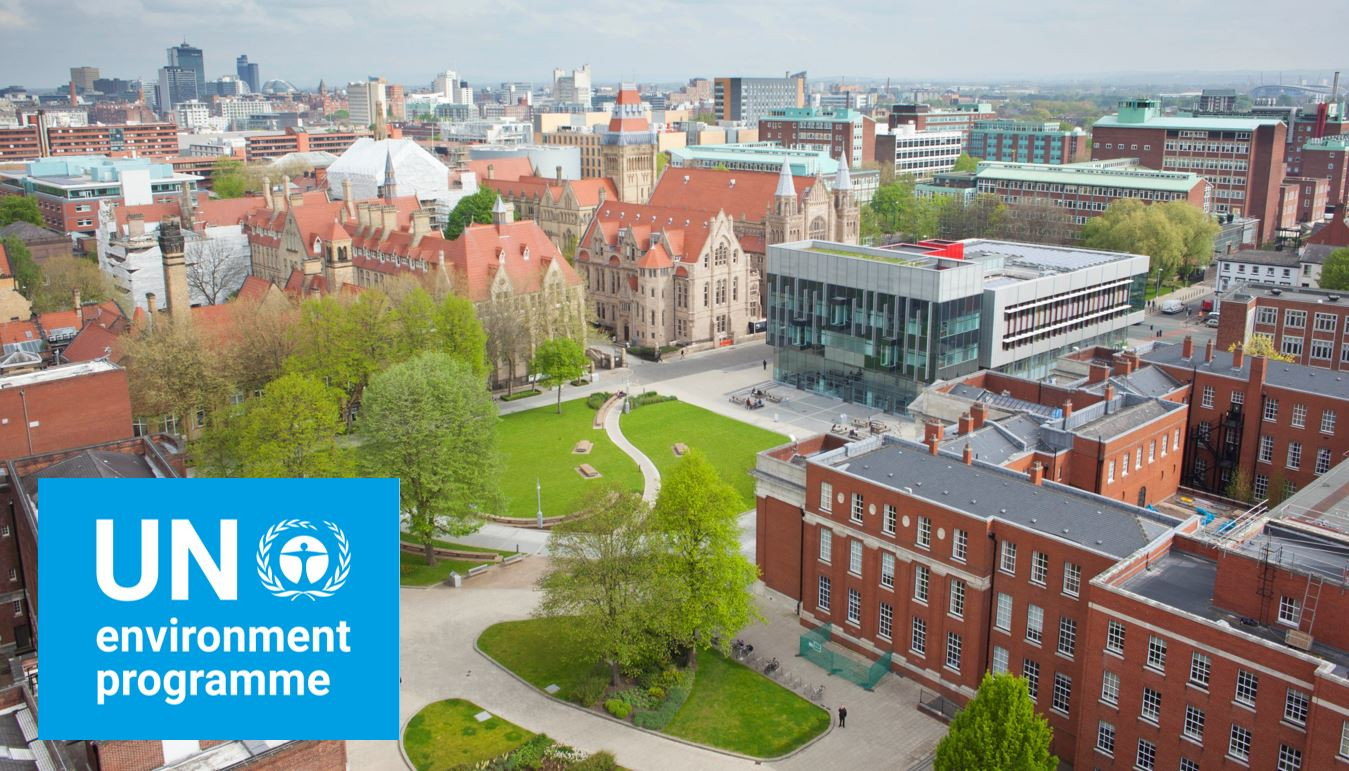University granted accreditation by United Nations Environment Programme

Our esteemed University has been granted accreditation by the United Nations Environment Programme (UNEP), a globally recognized authority on the environment. Only twenty universities worldwide have received this esteemed accolade. UNEP’s mission is to inspire and empower nations and peoples to improve their quality of life while safeguarding the well-being of future generations. For over half a century, UNEP has collaborated with governments, civil society, private enterprises, and UN entities to address pressing environmental challenges, ranging from ozone layer restoration to the protection of our oceans and the promotion of a sustainable economy.
This UNEP accreditation adds to our University’s impressive collection of awards and recognitions for our dedication to sustainability. The University of Manchester stands alone as the sole university to consistently rank in the top ten for social and environmental impact in the Times Higher Education Impact Rankings, which evaluate universities’ performance against the United Nations’ Sustainable Development Goals (SDGs). In 2023, we secured the first position in Europe and second globally among 1,705 universities from 115 countries, all of which submitted data on their efforts to address our planet’s most pressing challenges.
Leading the accreditation bid was Professor Michael Shaver, Director of Sustainable Futures and Director of the Sustainable Materials Innovation Hub at the Royal Academy of Engineering. Professor Shaver emphasized the University’s longstanding commitment and reputation for environmental sustainability, including our top rankings in the QS World University Sustainability Rankings 2024 for social and environmental responsibility.
As a result of this UNEP accreditation, our University now has the privilege to submit written contributions, actively participate in UNEP’s governing bodies such as the United Nations Environment Assembly and the Committee of Permanent Representatives, and hold observer status in the Assembly and its subsidiary bodies. We are thrilled to have achieved this status and eagerly anticipate utilizing our exceptional research contributions in environmental sustainability to drive meaningful change through the esteemed organization that is UNEP.




